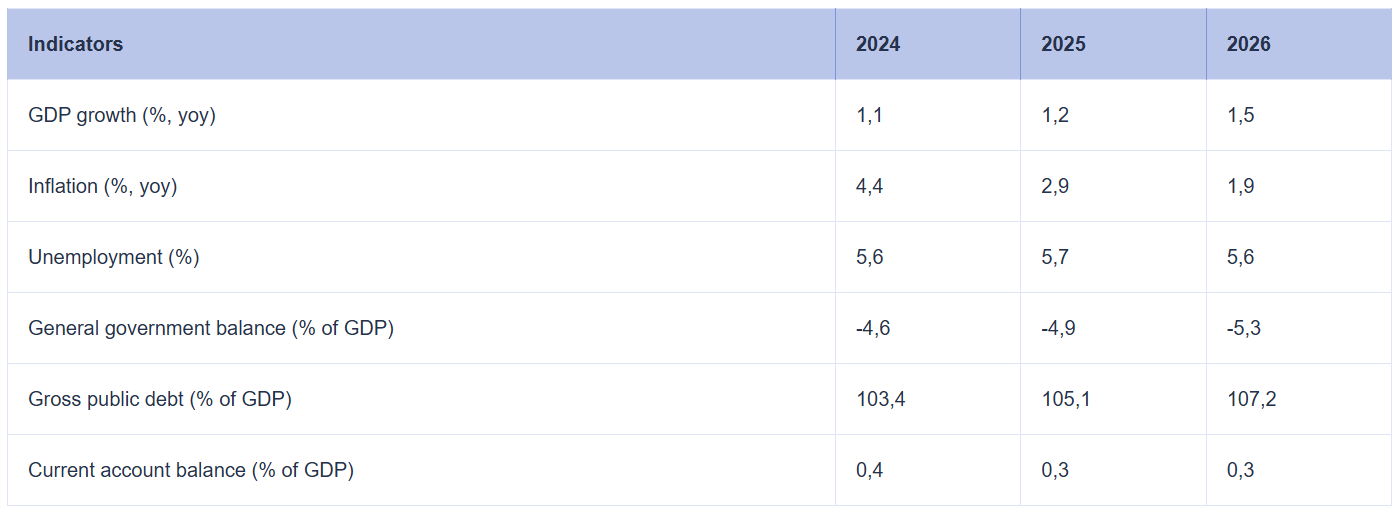European Commission warns Belgium about rising public spending

Without changed policies, Belgium risks its budget deficit rising to 4.9 per cent of GDP in 2025, the European Commission has warned in its new economic growth forecast.
Spending on pensions and social benefits continues to rise, as does interest expenditure to finance the national debt, which could climb to more than 105 per cent next year. Belgium and the other EU countries must balance deleveraging and boosting economic growth, the Commission says.
After a long period of stagnation, the European economy is rebounding, although growth rates are still modest, the Commission’s forecast shows. The average GDP of eurozone countries has increased by 0.8 per cent in 2024 and is expected to grow to 1.3 per cent in 2025 and 1.6 per cent in 2026, spurred by the recovery in purchasing power and lower interest rates.

Eurozone trend
Belgium will end 2024 with growth of 1.1 per cent, the Commission expects. In line with the trend in the eurozone, this should be 1.2 per cent in 2025 and 1.5 per cent in 2026. The rate of growth of the Belgian economy next year would be higher than in Germany at 0.7 per cent and France at 0.8 per cent, but lower than in the Netherlands (1.6 per cent) and Luxembourg (2.3 per cent).
The Commission warns of increased uncertainty that could weigh on the European economy. For instance, war in Ukraine and the Middle East pose geopolitical risks as well as risks to Europe’s energy security. New protectionist measures by EU trading partners could also disrupt global trade flows and affect Europe’s open economy, it said, without mentioning the US or other countries by name.
With a forecast inflation rate of 4.4 per cent, Belgium has the highest consumer price increase in the eurozone this year. Only Croatia (4.0 per cent) comes close, the average among euro countries being 2.4 per cent.
Government negotiations
The reasons for the sharp price rises in Belgium are the disappearance of energy support and the monthly indexation of variable electricity and gas contracts, which are quickly passed on to consumers.
Finally, the Commission warns of a rising Belgian budget deficit: 4.6 per cent of GDP in 2024, 4.9 per cent in 2025 and 5.3 per cent in 2026. This has a lot to do with the lack of new policies due to the protracted federal government negotiations, but rising spending on pensions and social benefits is also a factor.
Belgium is also expected to face higher interest expenditure as the debt ratio continues to grow – to 105.1 per cent in 2025 – and maturing debt has to be refinanced.
© BELGA PHOTO JAMES ARTHUR GEKIERE
Related news
